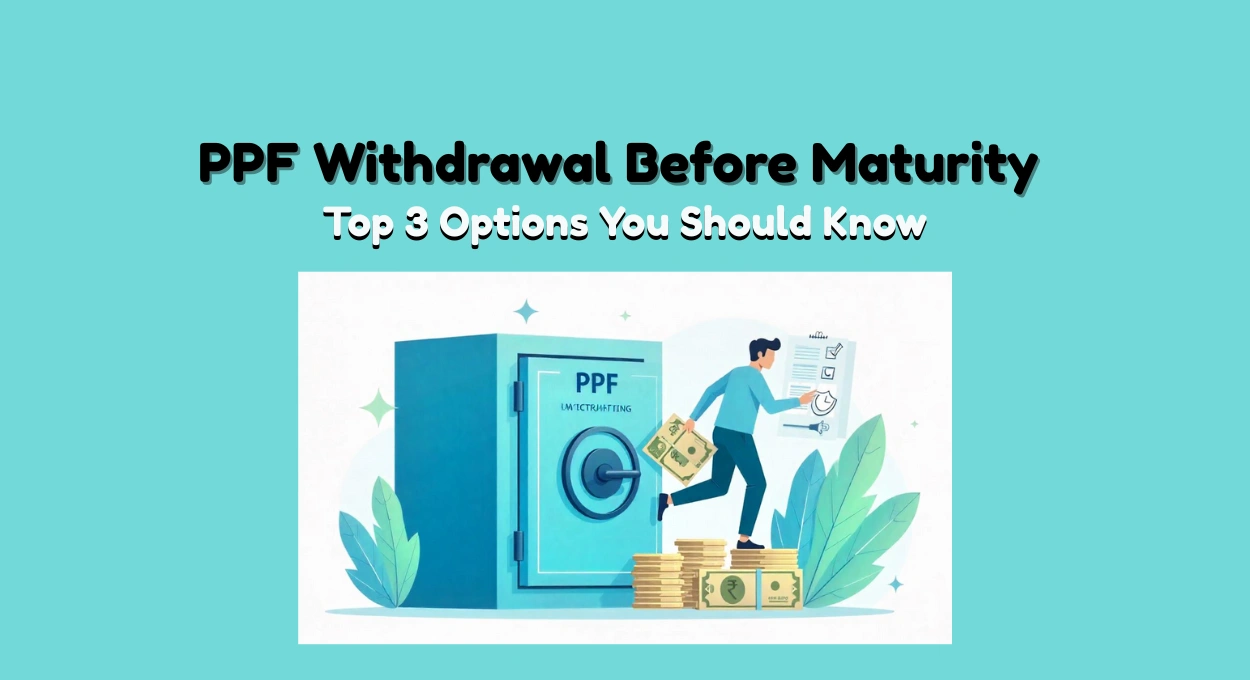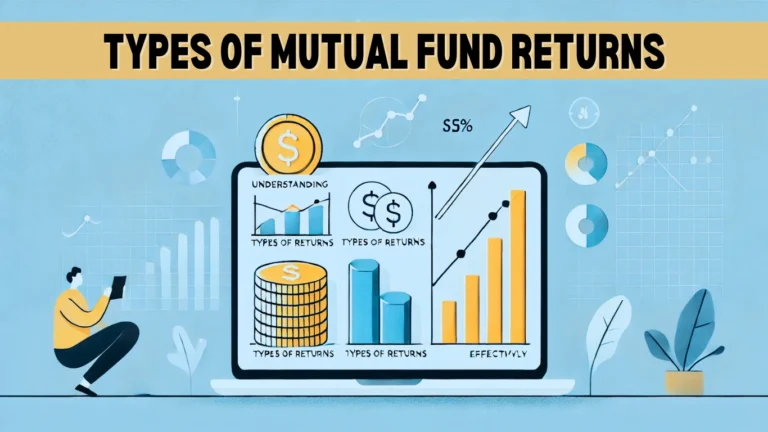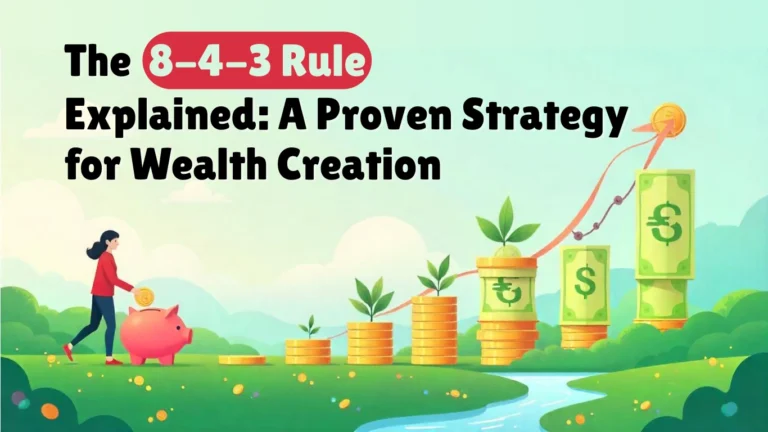How to Withdraw Money from Your PPF Account Early: 3 Smart Legal Methods
The Public Provident Fund (PPF) is widely regarded as one of the safest and most tax-efficient long-term investment options in India. With guaranteed returns and sovereign backing, it’s a preferred choice for individuals looking to build a retirement corpus or save systematically over time. However, one key limitation of the PPF is its 15-year lock-in period, which often leads investors to believe that their money is completely inaccessible during this time.
Thankfully, the PPF scheme isn’t as rigid as it seems. The government has provided several provisions to offer liquidity when needed. These Early PPF Withdrawal options ensure that you can access your money in emergencies without forfeiting the benefits of the scheme.
In this blog, we will walk you through the three main ways to access your PPF account before maturity:
- Loan Against PPF
- Partial Withdrawals
- Premature Closure
Each of these options comes with its own rules, limits, and benefits. By understanding how early PPF withdrawal works, you can plan better and use your funds wisely without affecting your long-term goals or tax efficiency.
Also Read :- How Often Can You Withdraw Money From Your Provident Fund Account? – Your Guide to PF Withdrawal Frequency Limit
Let’s break down how each method works, what documents you need, and how much you can withdraw—complete with examples and tables.
Overview: Early Withdrawal Options at a Glance
| Method | When You Can Use It | Max Amount You Can Get | Penalty/Interest Rate | Form Required | Common Reasons |
|---|---|---|---|---|---|
| Loan Against PPF | 3rd to 6th financial year | 25% of balance at end of 2nd year before | Interest = PPF rate + 1%; +6% if delayed repayment | Form D | Short-term cash needs |
| Partial Withdrawal | After 5 full FYs (from 6th) | Lower of 50% of 4th-year or last-year bal | No penalty, but amount stops earning interest | Form C | Medical, education, home repair |
| Premature Closure | After 5 FYs (under conditions) | 100% of balance | 1% interest reduction for every past year | Form 5 | Serious illness, study abroad |
1. Loan Against Your PPF Account
Eligibility
- Allowed from 3rd to 6th financial year after account opening.
- No new loan allowed if a previous one is unpaid.
How Much Can You Get?
You can borrow up to 25% of your PPF balance at the end of the 2nd year preceding the loan application year.
Example:
- Account opened in FY 2020–21.
- Applying for loan in FY 2023–24.
- Look at FY 2021–22 closing balance: ₹2,40,000 → 25% = ₹60,000 loan limit.
Interest Rate
| Repayment Timing | Interest Rate |
|---|---|
| Within 36 months | PPF rate + 1% (e.g., 8.1%) |
| After 36 months | PPF rate + 6% from day 1 (e.g., 13.1%) |
Steps to Apply
- Download and fill Form D from your bank or post office.
- Attach your PPF passbook.
- Submit to the branch.
Funds are usually transferred to your linked savings account in a few working days.
Pros and Cons
| Pros | Cons |
|---|---|
| No credit check | Only available for 4 years (3rd–6th FY) |
| Lower interest than personal loans | Loan limit is only 25% of balance |
| Interest continues on remaining corpus | Higher rate if not repaid on time |
Also Read :- Smart Tax Planning: Maximize 80C & 80D Benefits to Stay Clear of IT Notices
2. Partial Withdrawal After 5 Financial Years
Eligibility
Partial withdrawal is allowed from the 6th financial year onward, once 5 full FYs are completed.
How Much Can You Withdraw?
You can withdraw the lower of:
- 50% of the balance at the end of the 4th year before withdrawal, or
- 50% of the balance at the end of the previous year
Example:
| Financial Year | Balance (₹) |
|---|---|
| FY 2023–24 | ₹3,20,000 |
| FY 2024–25 | ₹4,00,000 |
| FY 2025–26 | ₹4,90,000 |
| FY 2026–27 | ₹6,10,000 |
- Withdrawal Year: FY 2027–28
- Use: FY 2023–24 (₹3,20,000) and FY 2026–27 (₹6,10,000)
- Withdrawal = 50% of lower balance = ₹1,60,000
How to Apply
- Fill Form C (available online or at branches)
- Attach passbook
- Submit to your bank/post office
Funds are typically credited within 2–4 working days.
Pros and Cons
| Pros | Cons |
|---|---|
| No penalty or interest haircut | Limited to 1 withdrawal per year |
| Easy process via banks/post offices | Withdrawn amount stops earning |
Also Read :- ETFs and Taxes: Your Simple Guide to Smarter Investing in India
3. Premature Closure of PPF Account
This is the only way to withdraw your entire PPF balance before 15 years, but it’s allowed only under strict conditions:
Valid Reasons for Closure
- Life-threatening illness (self, spouse, children, parents)
- Higher education (self or children)
- Change in residency (moving abroad)
What’s the Penalty?
You’ll lose 1% interest per year across your entire PPF term.
Example:
- Credited rate = 7.1%
- Revised rate = 6.1%
- The 1% difference is deducted from final payout.
How to Apply
- Fill Form 5
- Attach documents (medical bills, visa, etc.)
- Submit passbook and clear any loans
- Funds credited in 5–15 working days
Pros and Cons
| Factor | Premature Closure | Partial Withdrawal |
|---|---|---|
| Access amount | 100% | ≤ 50% |
| Penalty | 1% yearly haircut | None |
| Future contributions | Not allowed | Allowed |
| Tax-Free Status | Maintained | Maintained |
Planning Tips to Maximize PPF Use
- Deposit before 5th of the month to earn full-month interest.
- Combine loan + partial withdrawal over time.
- Use SBI YONO, or net banking for easier online processing.
- Document everything — balances, forms, passbook copies, etc.
Also Read :- New Tax Regime 2025: 3 Section 80C Investments That Still Deliver Value
Final Thoughts
Opting for an Early PPF Withdrawal doesn’t mean violating the scheme’s rules—it simply means making the most of the flexibility already built into the system. Whether you require a short-term loan, a partial withdrawal after five years, or a complete exit under exceptional conditions, there are clear provisions that allow you to access your funds in a structured and penalty-free manner.
The key is to evaluate your specific situation: How much money do you need? Is it an urgent requirement or a planned expense? Are you willing to forgo a portion of the long-term interest to meet today’s needs? Once you answer these questions, choosing the right withdrawal route becomes easier.
When done thoughtfully, an Early PPF Withdrawal can support you in times of need without derailing your long-term financial goals. Remember, the PPF scheme is not just about locking your money away—it’s about growing your wealth with safety and tax efficiency, while still offering controlled liquidity when life demands it. Used wisely, PPF continues to be one of the most powerful, government-backed financial tools available to Indian investors.
FAQs (Frequently Asked Questions)
1. Is PPF withdrawal taxable?
No. PPF enjoys full EEE (Exempt-Exempt-Exempt) status. Withdrawals are tax-free.
2. Can I withdraw PPF partially every year?
Yes, but only once per financial year after completing 5 full FYs.
3. Is there a limit to how many times I can take a loan against PPF?
Yes. Only one active loan is allowed at a time, and no loans are allowed after the 6th financial year.
4. Can I close my PPF account for any reason after 5 years?
No. You can only close it early for medical needs, education, or emigration with valid documents.
5. What is the PF Withdrawal Frequency Limit?
While PPF allows only one partial withdrawal per year, EPF (Employee Provident Fund) has different rules, depending on reason and amount. For PPF, the frequency limit is once per financial year for partial withdrawals.







